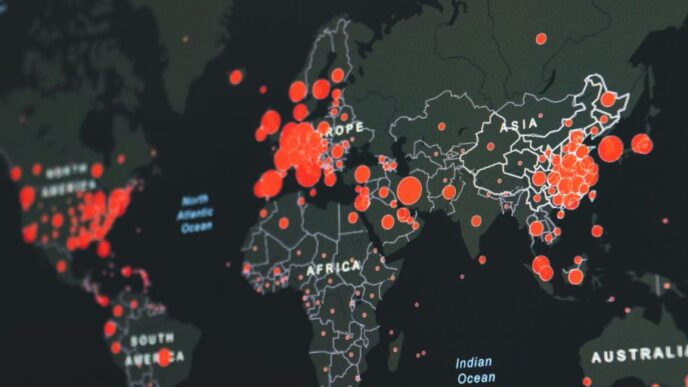In a significant shift in strategy, US Cyber Command has reportedly paused its offensive cyber operations against Russia. This decision, attributed to Defense Secretary Pete Hegseth, comes amid ongoing geopolitical tensions and aims to facilitate negotiations regarding Russia’s actions in Ukraine. The Cybersecurity and Infrastructure Security Agency (CISA) has denied any changes to its operational posture, leading to speculation about the implications of this pause.
Key Takeaways
- US Cyber Command has paused offensive cyber operations against Russia.
- The decision is seen as a tactic to encourage negotiations over Russia’s invasion of Ukraine.
- CISA maintains its operational stance remains unchanged, focusing on defending against various cyber threats.
Background of Cyber Command
US Cyber Command is one of the eleven Unified Combatant Commands, tasked with defending the nation and engaging adversaries in the cyber domain. Its dual mission emphasizes both defensive and offensive capabilities, making it a critical component of national security strategy.
The Pause in Operations
The reported order to halt cyber operations against Russia has raised eyebrows among cybersecurity experts and analysts. Some believe this pause is a strategic move to bring Russia to the negotiating table regarding its military actions in Ukraine. However, critics argue that this could leave the US vulnerable to continued cyberattacks from Russian operatives, who have a history of targeting American infrastructure and organizations.
CISA’s Response
In light of the reports about Cyber Command’s pause, CISA took to social media to assert that its operational priorities have not changed. CISA, which focuses on protecting critical infrastructure, does not conduct offensive operations but plays a vital role in coordinating cybersecurity efforts across federal, state, and local levels. The agency’s statement may have been an attempt to clarify its position amidst the confusion surrounding Cyber Command’s directive.
Implications for US-Russia Relations
The decision to pause cyber operations could signal a broader shift in US foreign policy towards Russia. Analysts suggest that the Trump administration may be seeking to stabilize relations with Russia to redirect focus towards China, which has emerged as a significant cybersecurity threat. This pivot raises questions about the US’s long-term strategy in dealing with both nations, especially given the ongoing cyber threats from Russia, including ransomware attacks and espionage campaigns.
Conclusion
The pause in US Cyber Command’s operations against Russia reflects the complex interplay of cybersecurity, diplomacy, and national security. As the situation evolves, the implications of this decision will be closely monitored by both cybersecurity experts and geopolitical analysts. The effectiveness of this strategy in mitigating threats from Russia while addressing the broader challenges posed by China remains to be seen.












